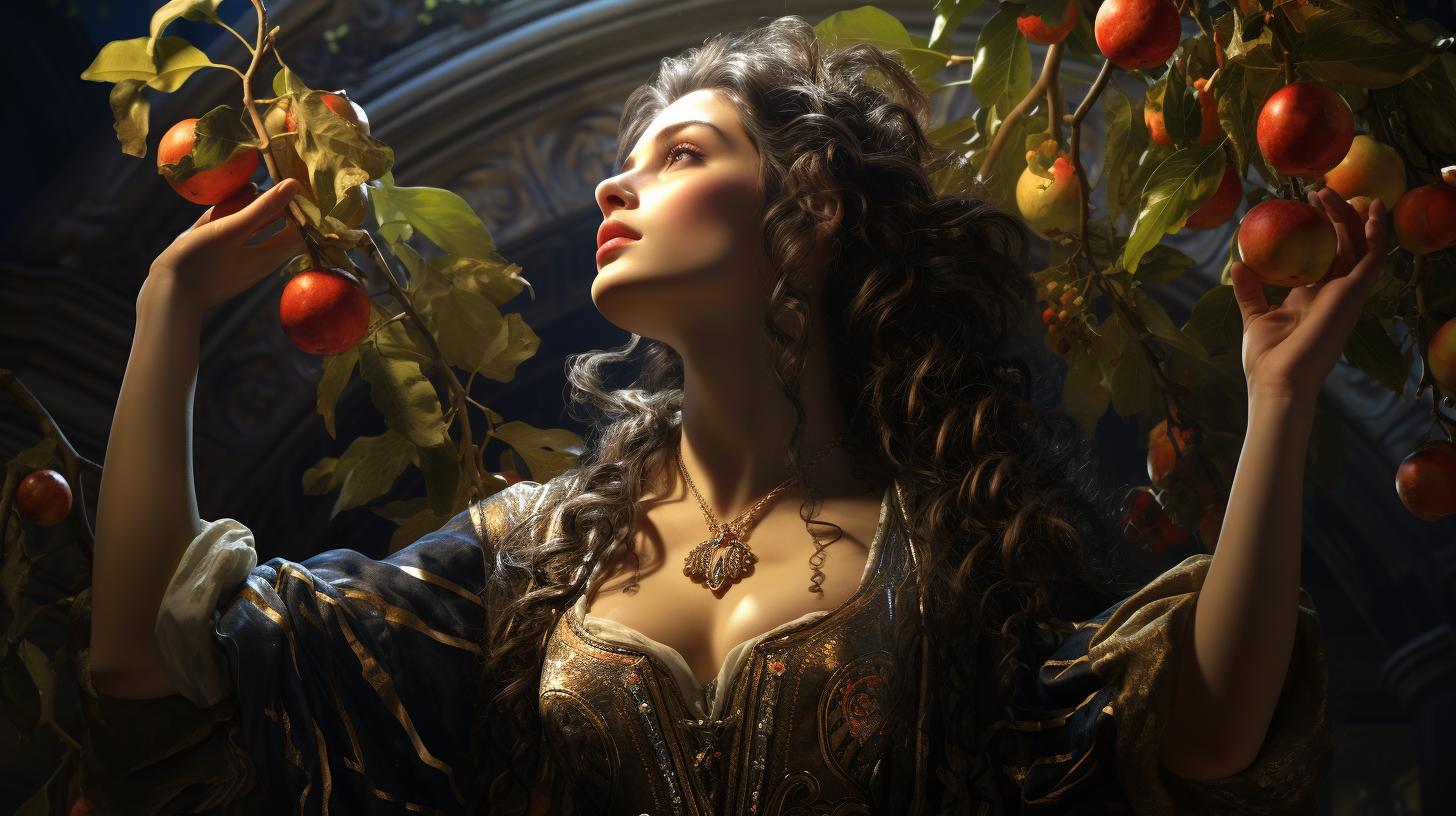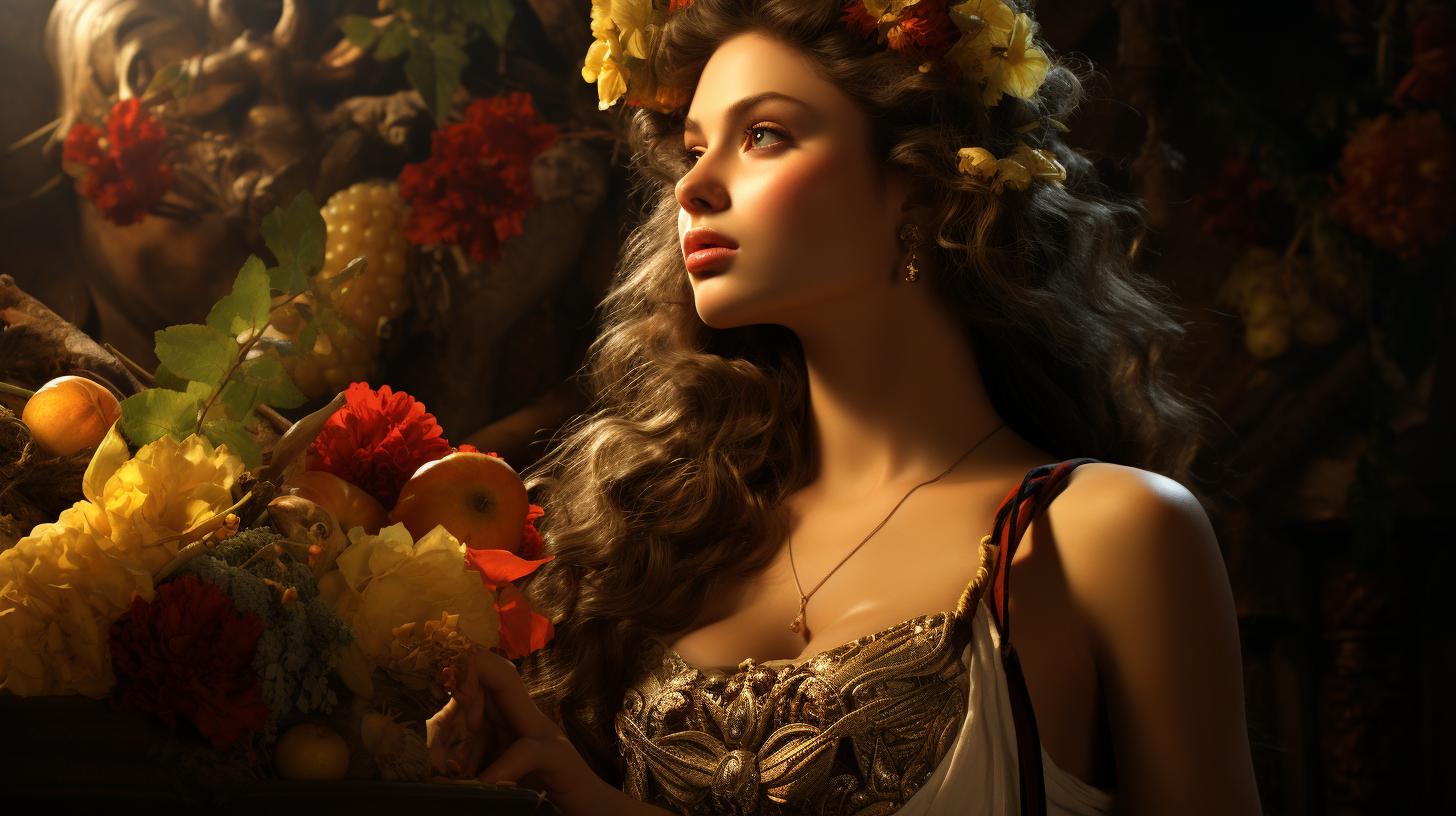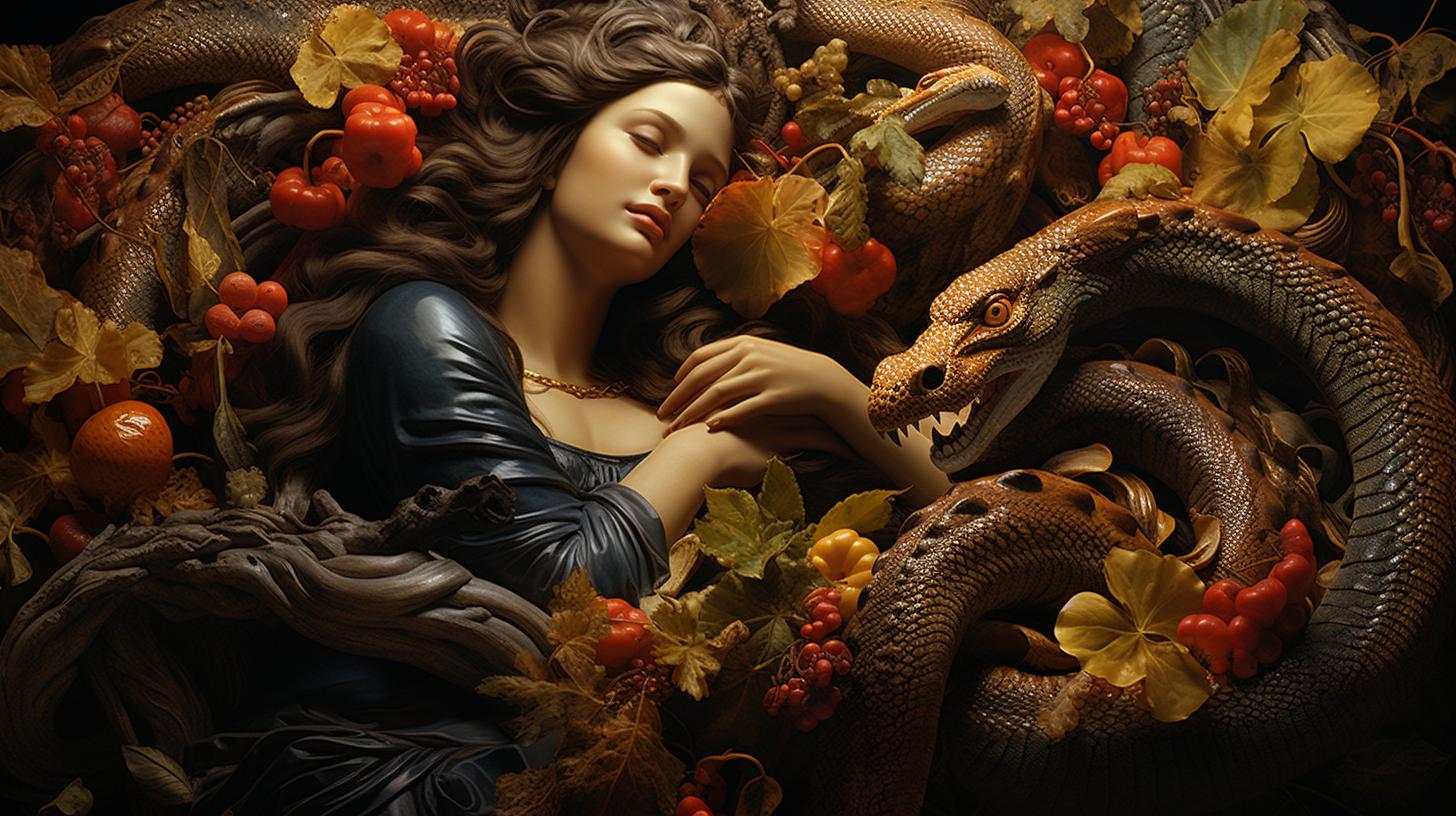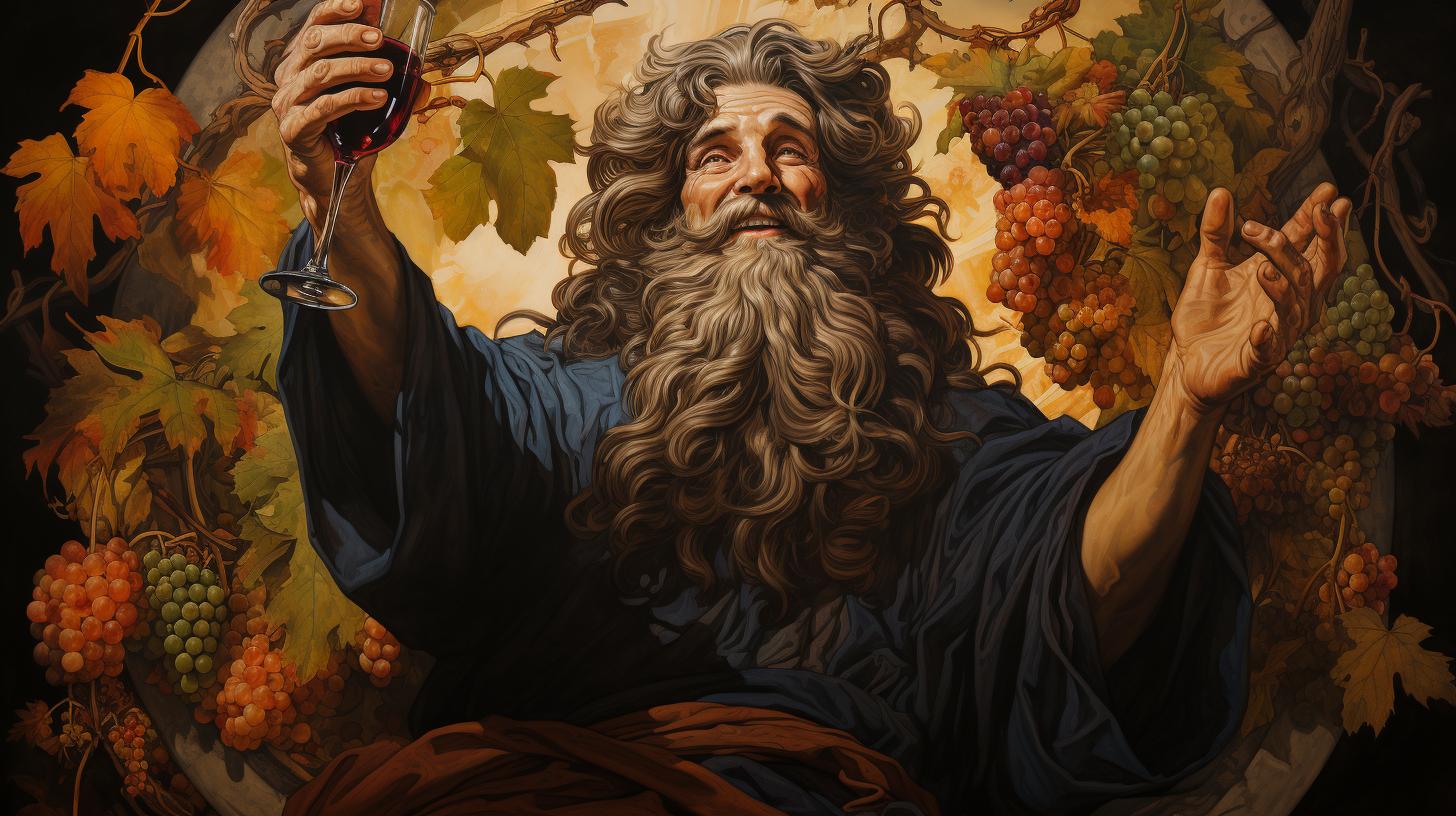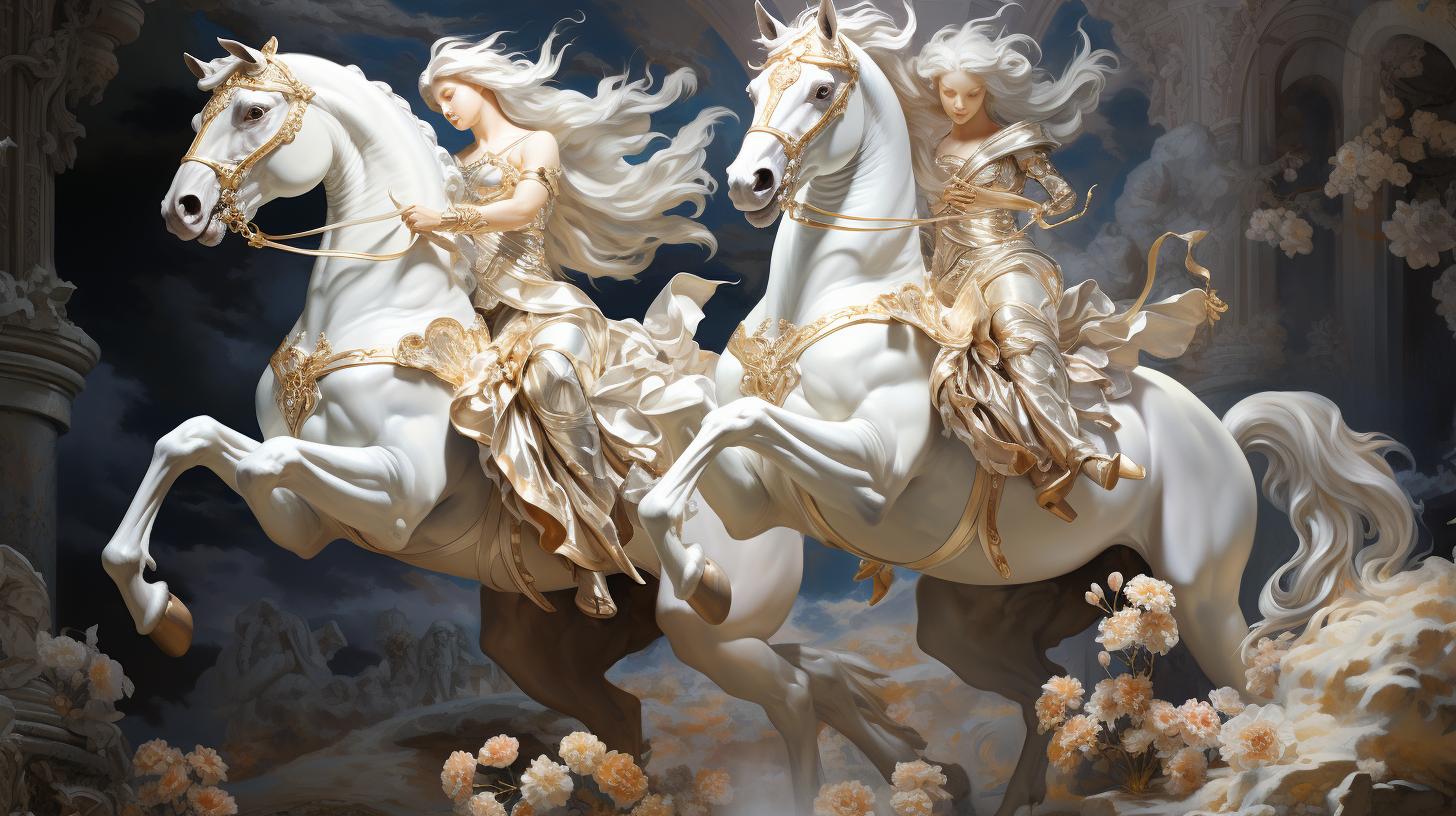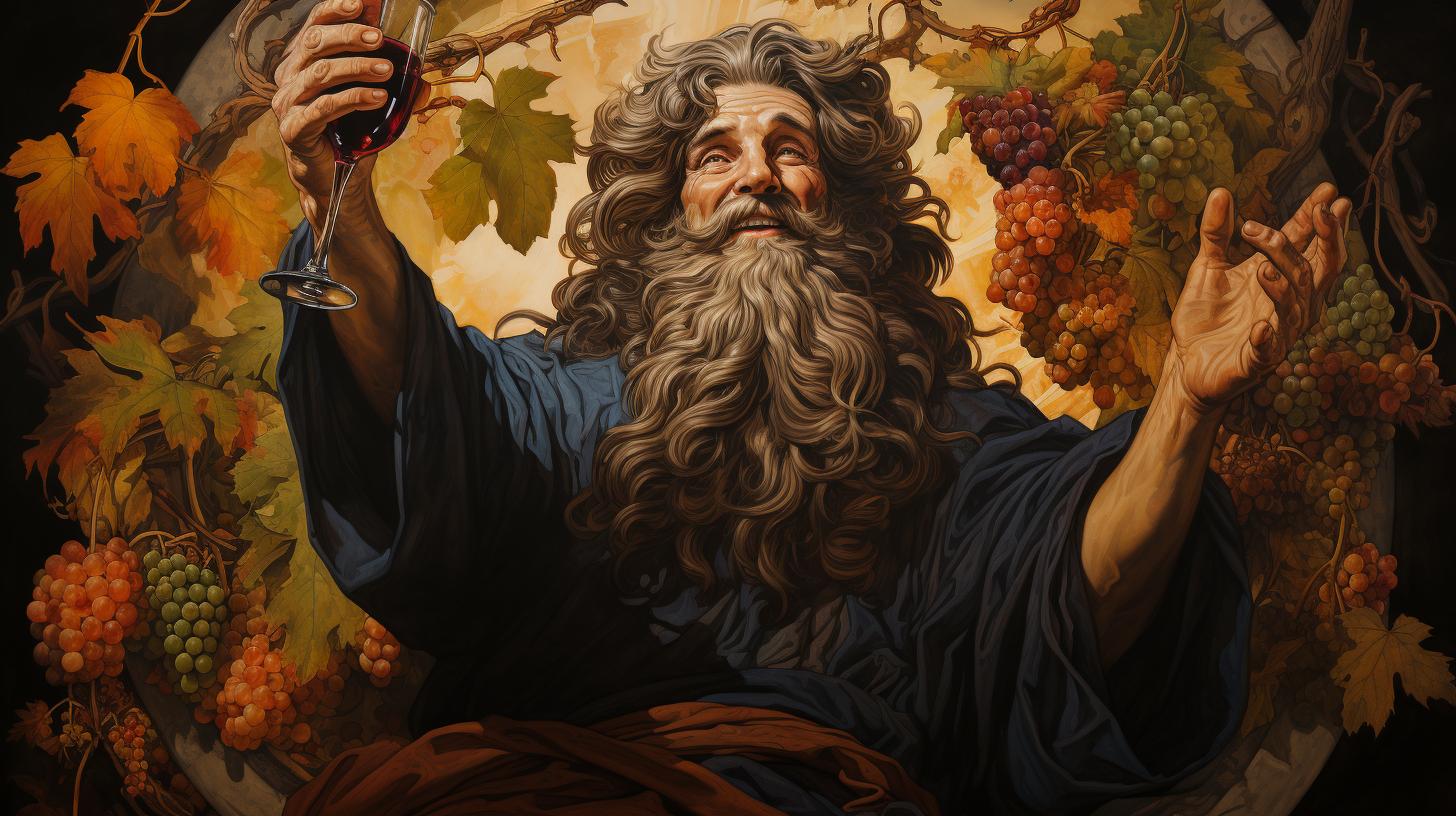Roman Goddess Pomona: The Patroness of Apple Orchards and Artistry
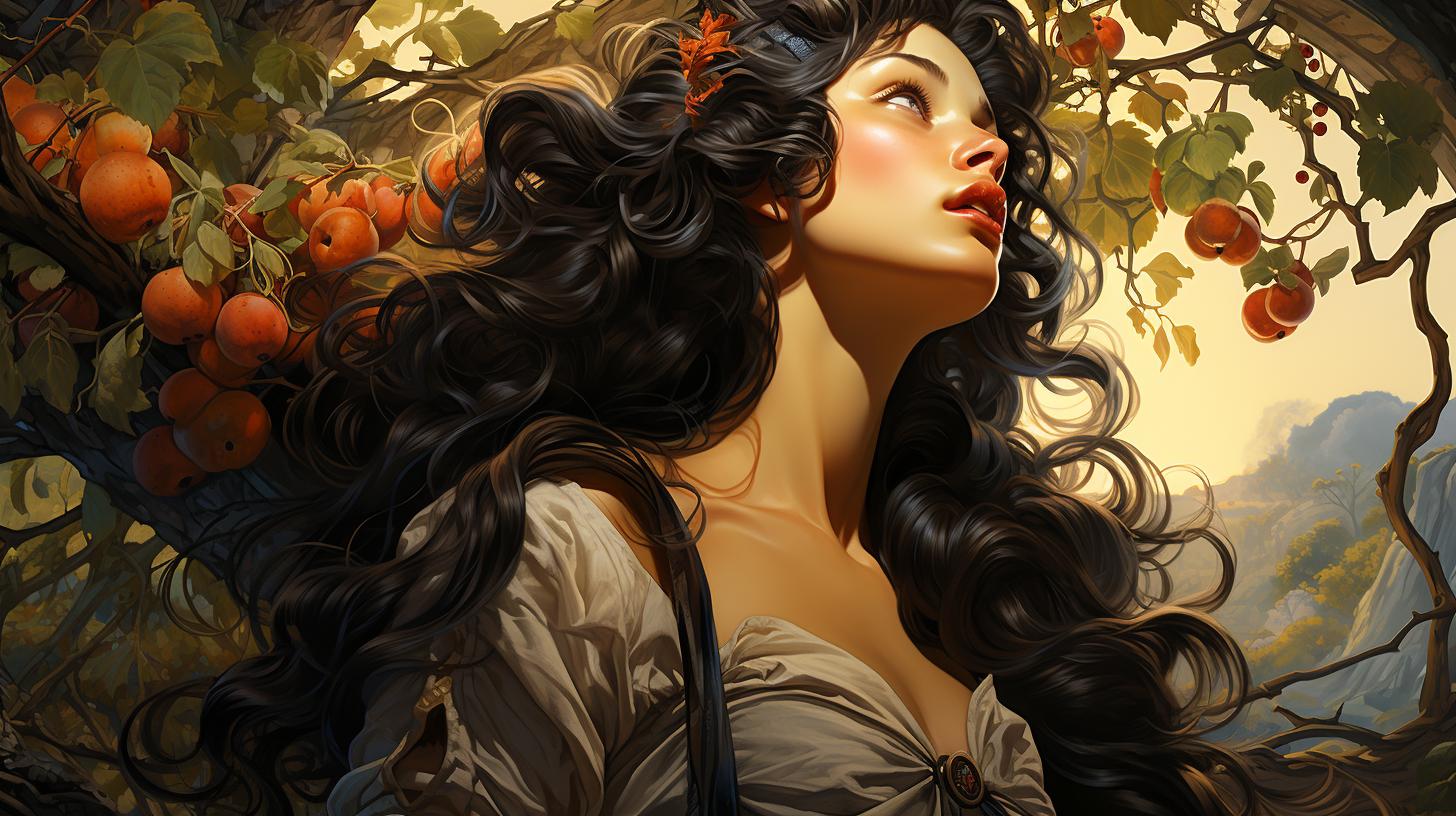
Roman goddess Pomona was revered in ancient Roman mythology as the guardian of fruit trees and orchards. Her expert knowledge in pruning and grafting, symbolized by the pruning knife she wielded, ensured the bountiful growth of these trees.
Pomona’s influence extended beyond agriculture, with artists finding inspiration in her beauty and grace. Celebrated on the 13th of August, Pomona’s festival commemorated the first apple harvest and laid the foundation for modern traditions like apple bobbing on Halloween.
Her legacy thrives today in the abundant apple varieties cultivated and her representations in art and literature.
The Origins of Pomona in Roman Mythology
In Roman mythology, Pomona holds her place as a revered goddess associated with the bountiful world of fruit trees. Born from the ancient beliefs and traditions of Rome, Pomona emerged as a symbol of fertility and abundance in the natural realm.
Her roots can be traced to the earliest agricultural practices, where the cultivation of fruit trees played a vital role in sustaining communities.
As a goddess deeply intertwined with the primeval forces of nature, Pomona represented the beauty and productivity of orchards.
Unlike other deities directly linked to the harvest, Pomona’s focus resided specifically in the care and protection of fruit trees, rather than the actual harvest of the fruits themselves.
In ancient Rome, fruit trees occupied an essential place in the cultural fabric of society, providing sustenance and nourishment to its people.
Pomona’s significance elevated fruit trees to a revered status as vital sources of sustenance and prosperity.
The mythology surrounding Pomona portrays her as a meticulous guardian of fruit trees, dedicating herself to their well-being and growth.
Her expertise in the art of pruning and grafting manifested through the pruning knife she carried, symbolizing her commitment to the health and welfare of the orchards under her watchful eye.
Pomona’s role in Roman mythology also involved her relationships with other deities. While she was pursued by numerous suitors, it was the god Vertumnus who ultimately won her heart. As a deity associated with gardens and orchards, Vertumnus became the perfect match for Pomona, their mutual passions and expertise intertwining harmoniously.
Throughout the annals of Roman mythology, Pomona’s origins and presence evoked a deep reverence for the interconnectedness of nature and its abundant offerings. She stands as a testament to the profound significance of fruit trees, their cultivation, and the profound impact they have on the lives of mankind.
Pomona and her Role as the Roman Goddess of Fruit Trees
Pomona, a prominent figure in Roman mythology, held a significant role as the goddess of fruit trees. In the agrarian society of ancient Rome, fruit trees were considered vital for sustenance, offering nourishment and sustenance to the population.
The Importance of Fruit Trees in Roman Culture
Fruit trees played a crucial role in Roman culture, serving not only as a source of food but also as a symbol of fertility and abundance. The Romans revered these trees, recognizing their contribution to the ecosystem and the prosperity they brought to their society.
Pomona’s Responsibilities and Duties
As the goddess of fruit trees, Pomona was responsible for their care and protection. Her expertise in pruning and grafting played a crucial role in ensuring the healthy growth and bountiful harvest of these trees.
It was she who diligently maintained and nurtured the orchards, safeguarding them against any potential harm or misfortune.
Pomona’s Relationships with Other Roman Gods and Goddesses
Pomona’s interactions with other Roman gods and goddesses further exemplified her importance in the Roman pantheon. While she was pursued by many suitors, it was Vertumnus, the god of gardens and orchards, who eventually won her heart.
Their compatibility showcased the deep connection between fruit trees and the harmonious cultivation of gardens.
Pomona, with her unwavering dedication to fruit trees and the intrinsic link between the divine and nature, stood as a revered figure in Roman mythology.
Her role as the goddess of fruit trees highlighted the significance of agricultural practices and the reverence accorded to the gifts of the Earth.
The Symbolism and Representation of Pomona in Art and Literature
Pomona, the Roman goddess associated with fruit trees and orchards, holds a significant place in art and literature.
She has long served as a muse for artists, inspiring their creative expressions. In sculptures and paintings, Pomona is often depicted as a graceful goddess, adorned with fruits and flowers, symbolizing abundance and fertility.
Pomona as a Muse for Artists
Pomona’s beauty and connection to nature have made her a popular subject of artistic inspiration. Artists draw upon her depiction as a nurturing goddess, capturing her harmonious relationship with the natural world.
Through their works, they celebrate the vitality and abundance that Pomona embodies.
Depictions of Pomona in Sculptures and Paintings
Sculptures and paintings play a vital role in immortalizing Pomona’s image. In these artistic creations, Pomona is portrayed with grace and elegance, often holding a pruning knife as a symbol of her expertise in horticulture.
She is depicted surrounded by fruit-laden trees, and her affectionate care for the orchards is evident in her gentle demeanor.
Pomona’s Influence on Poetry and Literature
Pomona’s influence extends beyond visual arts into the realm of poetic and literary works. Poets and writers have drawn upon her symbolism to evoke themes of fertility, abundance, and the beauty of nature.
In their verses, they celebrate Pomona as a guardian of orchards and muse of fruitfulness, capturing the essence of her nurturing and fruitful spirit.
Through art and literature, Pomona’s symbolism and representation have endured, resonating with audiences across centuries.
Her graceful presence and association with fruitfulness continue to inspire and captivate artists and writers, ensuring that her legacy remains alive in modern culture.
The Pomona Festival: Celebrating the Harvest of Apples
The Pomona Festival holds a special place in Roman culture, honoring the goddess Pomona and the bountiful apple harvest.
This annual celebration, steeped in ancient traditions, brings communities together to give thanks for the abundance of the orchards.
The Festivities and Customs Associated with Pomona
During the Pomona Festival, orchard owners and farmers pay homage to Pomona by adorning their orchards with garlands of flowers and colorful ribbons. The festivities commence with a grand procession, where individuals present offerings of apples and other harvest fruits to Pomona’s sacred altar.
As part of the celebrations, various games and competitions take place, such as apple-picking races and apple-themed culinary contests. These activities showcase the skill and agility of participants while fostering community camaraderie and friendly competition.
The festival also features lively music and dancing, captivating performances by local artists, and the sharing of delicious apple-based dishes and drinks. It is a time for joyous revelry, expressing gratitude for a prosperous harvest, and invoking Pomona’s blessings for future abundance.
The Transformation of Pomona’s Festival into Modern-Day Traditions
While the ancient Pomona Festival holds its roots in Roman tradition, it has influenced various customs and practices that continue to thrive in modern times. One such example is the playful tradition of apple bobbing during Halloween parties.
Apple bobbing, originally inspired by Pomona’s celebration, involves trying to retrieve apples from a large basin of water using only one’s mouth. It has become a beloved Halloween activity, symbolizing good fortune and connecting us to our agricultural heritage.
Additionally, Pomona’s influence can be seen in the establishment of apple orchards and autumn harvest festivals worldwide. These events encourage people to embrace the abundance of nature and partake in the joy of apple picking, cider making, and enjoying seasonal treats.
Key Points:
- The Pomona Festival celebrates the apple harvest and the Roman goddess Pomona.
- During the festival, orchards are adorned, offerings are made, and games and competitions take place.
- Modern traditions like apple bobbing during Halloween have their roots in the Pomona Festival.
- Apple orchards and autumn harvest festivals worldwide draw inspiration from Pomona’s celebrations.
Pomona’s Legacy in Modern Culture
Pomona, the Roman goddess of fruit trees and orchards, continues to leave her mark on various aspects of modern culture.
Her influence can be seen in botany and gardening practices, contemporary art and entertainment, as well as in the popularity of certain fruit varieties associated with her.
Pomona’s Influence on Botany and Gardening Practices
Pomona’s expertise in caring for fruit trees has been a source of inspiration for botanists and gardeners alike.
Her emphasis on proper pruning and grafting techniques has contributed to the development of effective horticultural practices. Today, her legacy can be observed in the meticulous care given to orchards and the cultivation of thriving fruit-bearing trees.
References to Pomona in Contemporary Art and Entertainment
Pomona’s beauty and significance as a goddess have captured the imagination of artists throughout the ages. In contemporary art, references to Pomona can be found in various forms, including paintings, sculptures, and illustrations.
Additionally, her character has been depicted in literature, theater, and even in modern-day films and television shows, serving as a symbol of natural abundance, beauty, and fertility.
Popular Thriving Fruit Varieties Associated with Pomona
Some fruit varieties have become closely linked with Pomona and her fruitful domain.
The cultivation of these specific types of fruits has been influenced by the goddess’s association with orchards and abundance. Apple, plum, and cherry are among the popular thriving fruit varieties that evoke Pomona’s presence and legacy.
The dedication to nurturing these fruits reflects Pomona’s commitment to preserving and celebrating nature’s bounty.
.











